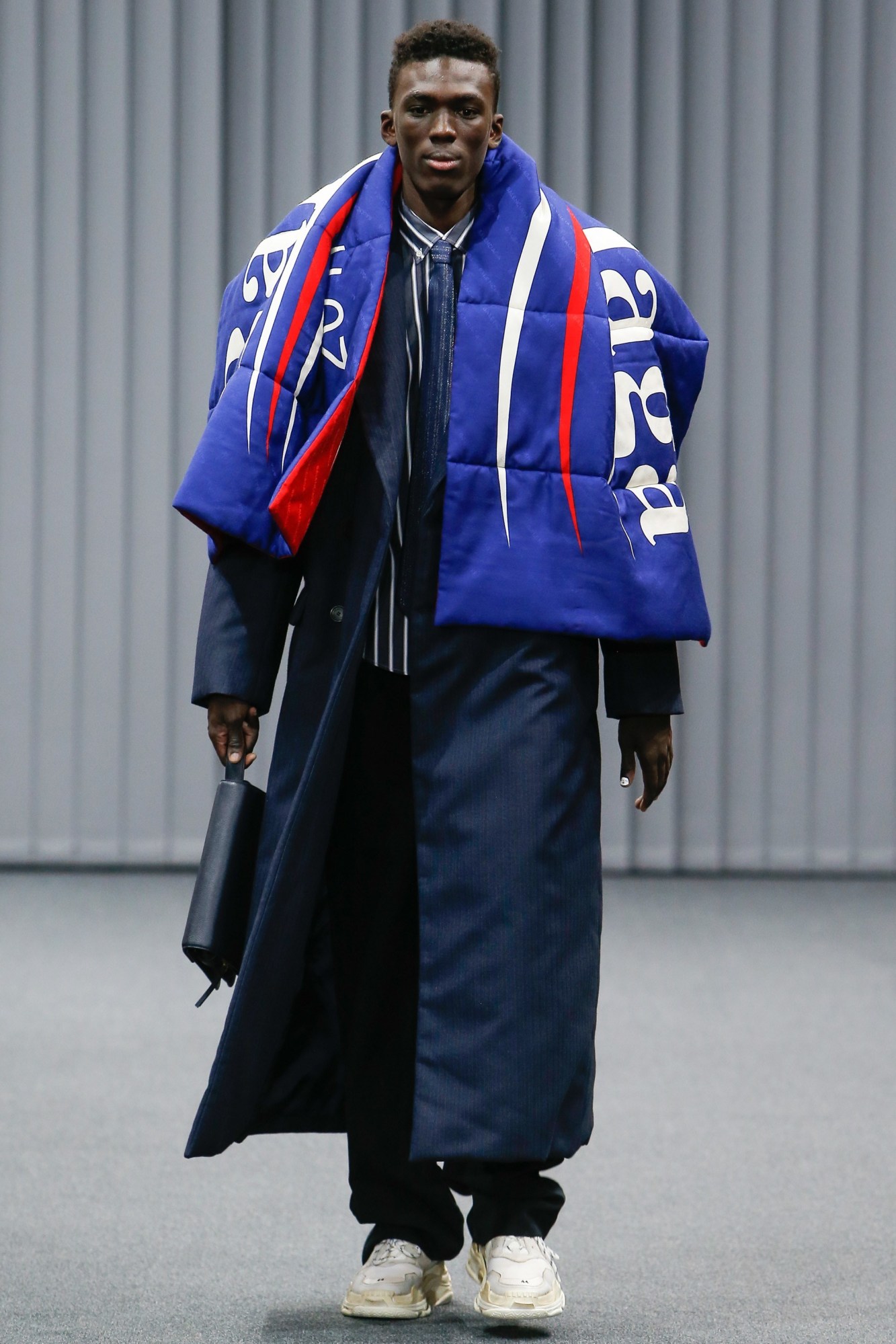The hardest part about working in a creative company expected to make a profit is the cynicism of the corporate machine. Perhaps that’s why Walter van Beirendonck styled all his exits with over-dimensional gloves on the first day of fall/winter 17 men’s shows in Paris. Watching his show hours after Demna Gvasalia‘s fantastic Balenciaga collection based on those corporate cannibals, you couldn’t help but read into van Beirendonck’s enormous gloves as a symbol of the heavy-handedness of the suits, who are always pushing the creative talents that keep their brands going to produce the same product for less — with little regard for the human aspect of the work they do. On Wednesday in Paris, designers collectively reflected the disconnect of a Trump-tastic world run once again — as of this Friday when he takes his presidential oath — by corporate suits, who dish out executive orders from the top with little care for the human consequences of their actions. “Hi, it’s Maureen. Press 2 for immigration,” a voice on Christophe Lemaire‘s soundtrack said. It was comprised of call center people, real but robotic the computer-says-no way, and those voice-sensitive automated systems increasingly favored by big corporations where callers don’t even get to speak to a person — the symbol of ultimate human disconnect.
Read: The elusive Rei Kawakubo makes a stealth appearance at Balenciaga!
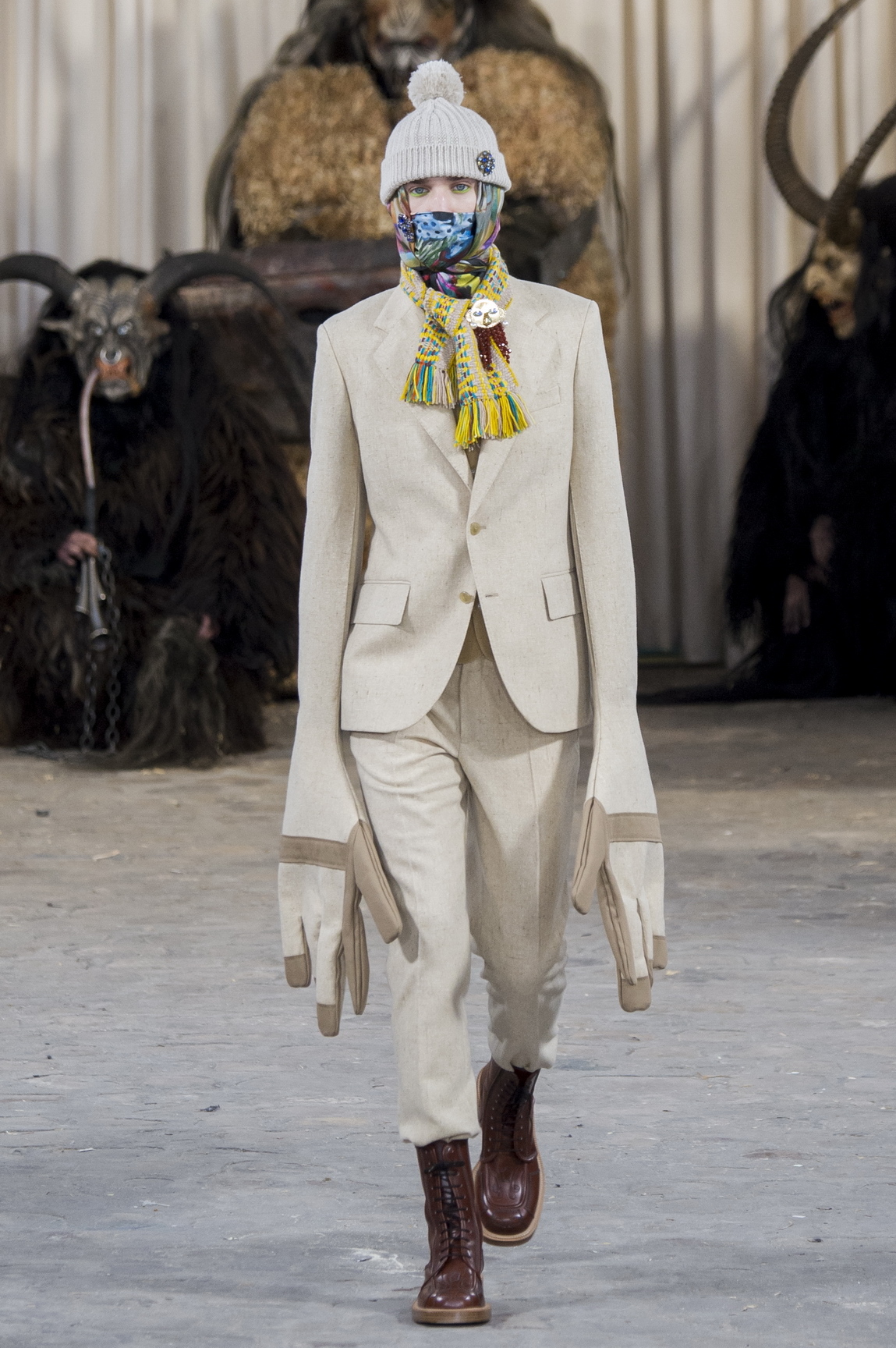
Lemaire’s soft, warmly colored tailoring had an almost friendly character about it, the antithesis to the strict, buttoned-up uniforms favored by the corporate machine — and breaking down those uniforms and what they stand for would be the theme of the day. “The first collection I did was about tailoring and really putting tailoring on a pedestal, and this time we worked a lot around formal attire and business clothing,” Demna Gvasalia said after a Balenciaga show that deconstructed the business wardrobe, hailed it, and ridiculed it all at once. “We wanted to take away the rigidity and the coldness of the corporate suit. That’s why the collection had a lot of elements of padding and comfort. Most of the guys were wearing sneakers. It’s warm and cozy, actually —something that’s not really a characteristic of the corporate.” Balenciaga recently moved offices and became neighbors with Kering, the group which owns the house, resulting in a meeting between the hoodie-clad creative talents, who design the brand, and the suits, who employ them. “My work is always about reflecting the reality around us, and I think it’s just honest. That’s what’s happening around us. We now kind of co-exist with this corporate institution, which influenced the beginning of this collection,” Gvasalia said.

In all its tactile, human warmth — styled on a broad variety of men — the collection was an outreach to the corporate world: an attempt to bridge our two realms, and a kind of plea for mutual understanding. In a brilliantly subversive move only Gvasalia would have the guts to orchestrate, one sweatshirt even featured the Kering logo as both a sign of respect or perhaps a nod at the realization that the designer — and even the fashion brand itself — are always at the mercy of the powers-that-be. In other instances, tailoring was deconstructed or the business uniform entirely ripped apart such as in a string of bare-chested looks. “That was the idea of having things undone in looks. In the corporate world everything would be tucked in and very proper. We just wanted to undo everything,” Gvasalia explained. “We wanted to soften it and make it warmer.” In the collection’s comment on the coldness of the corporate world, his approach to the reactionary political and social situation that’s been the overriding theme this season was a refreshing point of view, and a fabulously executed one, too. Most powerfully, Gvasalia used the blue and red colors of the American political parties in a new ‘Balenciaga 2017’ logo, as if to suggest that in a time that answers to President Trump, any strong brand could gather enough support to take over the free world.
Read: “It’s important to know the past in order to feel the future” – Get to know game-changing designer Demna Gvasalia a little better.
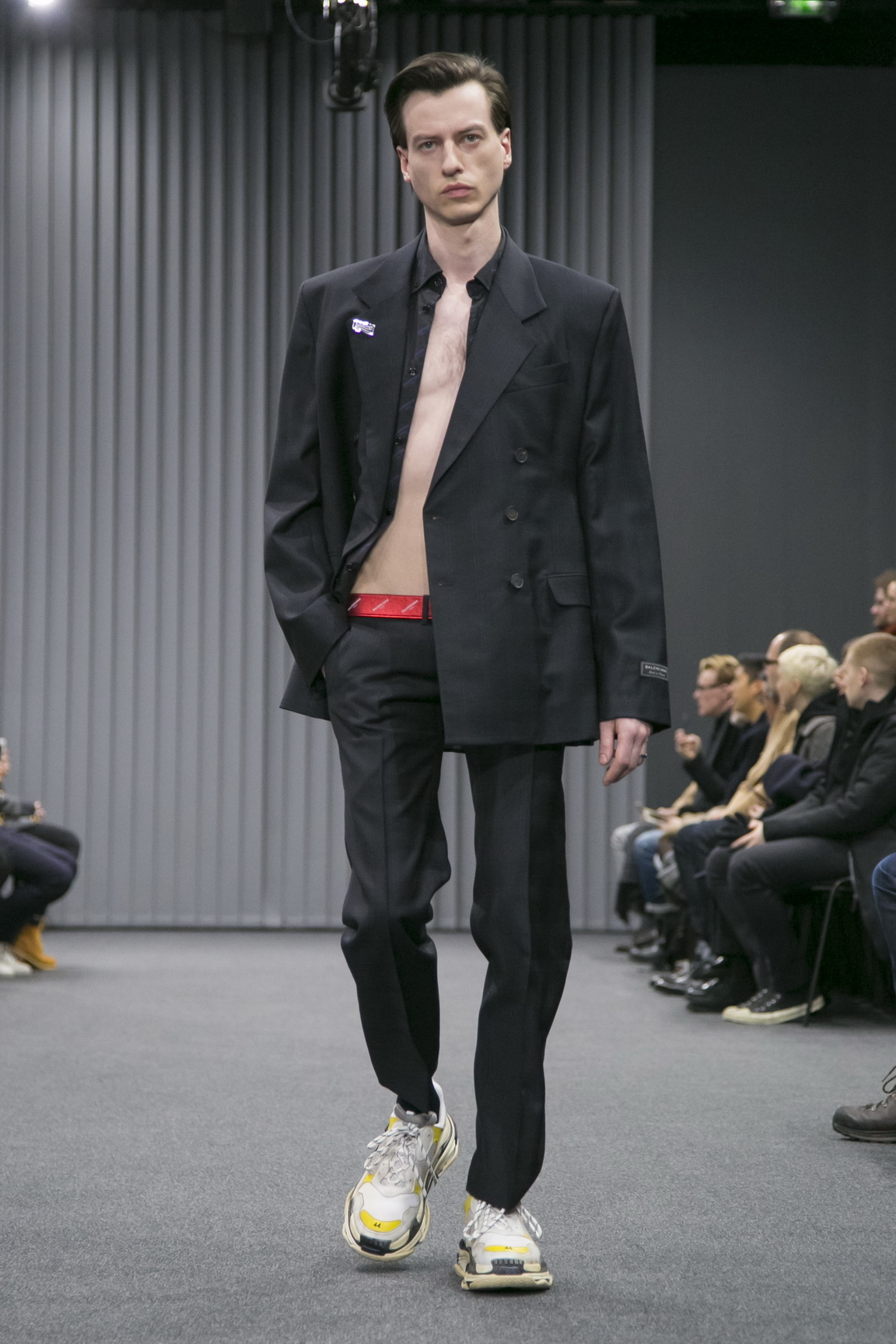
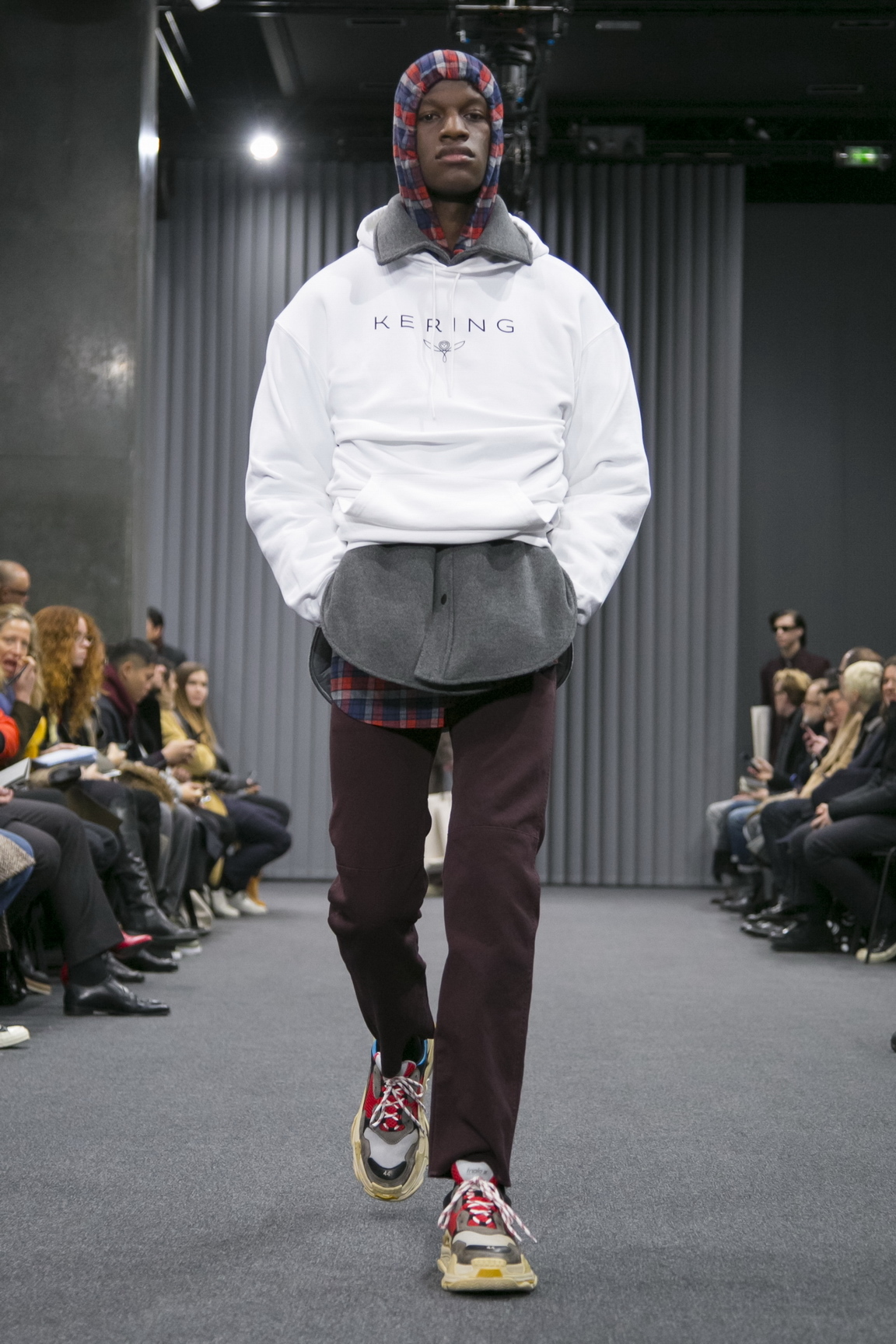
“I think this is the moment to show a new gentleness, even for men,” Pierpaolo Piccioli said after his romantic Valentino show, “because today ‘gentleman’, to me, means adding gentleness to masculinity.” In the designer’s first solo men’s show after the departure of Maria Grazia Chiurito Dior, Piccioli continued the exploration of punk he started in his last women’s collection as the antidote to a cynical zeitgeist. “The wardrobe is close to the idea of tailoring in couture, but breaking the rules of them. I don’t care about gender. I just like people for what they are. And the wardrobe is wardrobe. That’s it.” He stripped his tailoring of the slightest hint of corporate dressing, emblazoning garments with seditionist lettering created in collaboration with artist Jamie Ried, the man behind the Sex Pistols’ ransom note-style God Save the Queen artwork. “It seemed to be the end until the next beginning,” read one. “Reclaim your heritage. Beauty is a birthright,” read another. “It was so beautiful to be able to capture punk in a new individual strength,” Piccioli said. “I started this collection thinking about what it means to be a man today, and to me it means you just have the opportunity to be whoever you are. Showing your sensitivity is the new form of strength. You don’t have to stick to the rules of the past.”

Nothing could ring truer for Demna Gvasalia’s sentiment that morning, either, or for Lemaire or Walter van Beirendonck or Y/Project or Haider Ackermann, whose presentations on Wednesday in Paris were all rooted in sentiments of sensitivity and gentleness. Piccioli opened his show with the last track on David Bowie’s Blackstar album, released just three days before he died last year. Widely believed to be the artist’s final statement on the endless interpretations of his work, in “I Can’t Give Everything Away” Bowie talks about explanations as unnecessary or sometimes simply impossible. For Piccioli, who imbues his collection with more meaning than a garment could possibly express — even his intricate Valentino kind — the designer and the artist easily found common ground: you can’t give everything away. “David Bowie is important to me, because he was a man who changed the way of being a man,” he reflected. “He was the one who started breaking the rules.” To corporate cannibals and the creatives who work for them alike, the first day of fall/winter 17 men’s shows was a much-needed rule-breaker.
Read: From London to Russia, Milan to Paris, explore the rest of our fall/winter 17 men’s coverage.
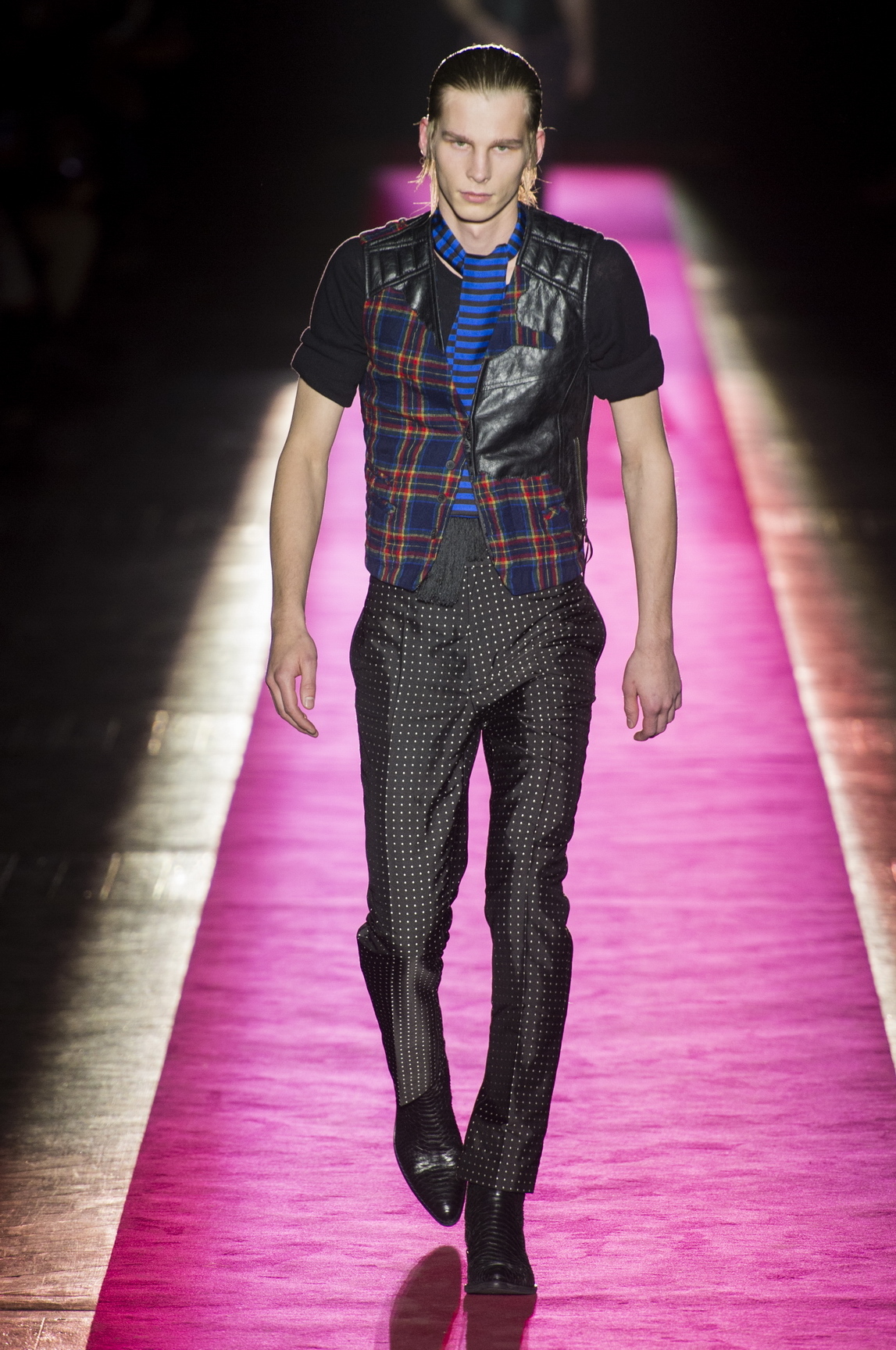
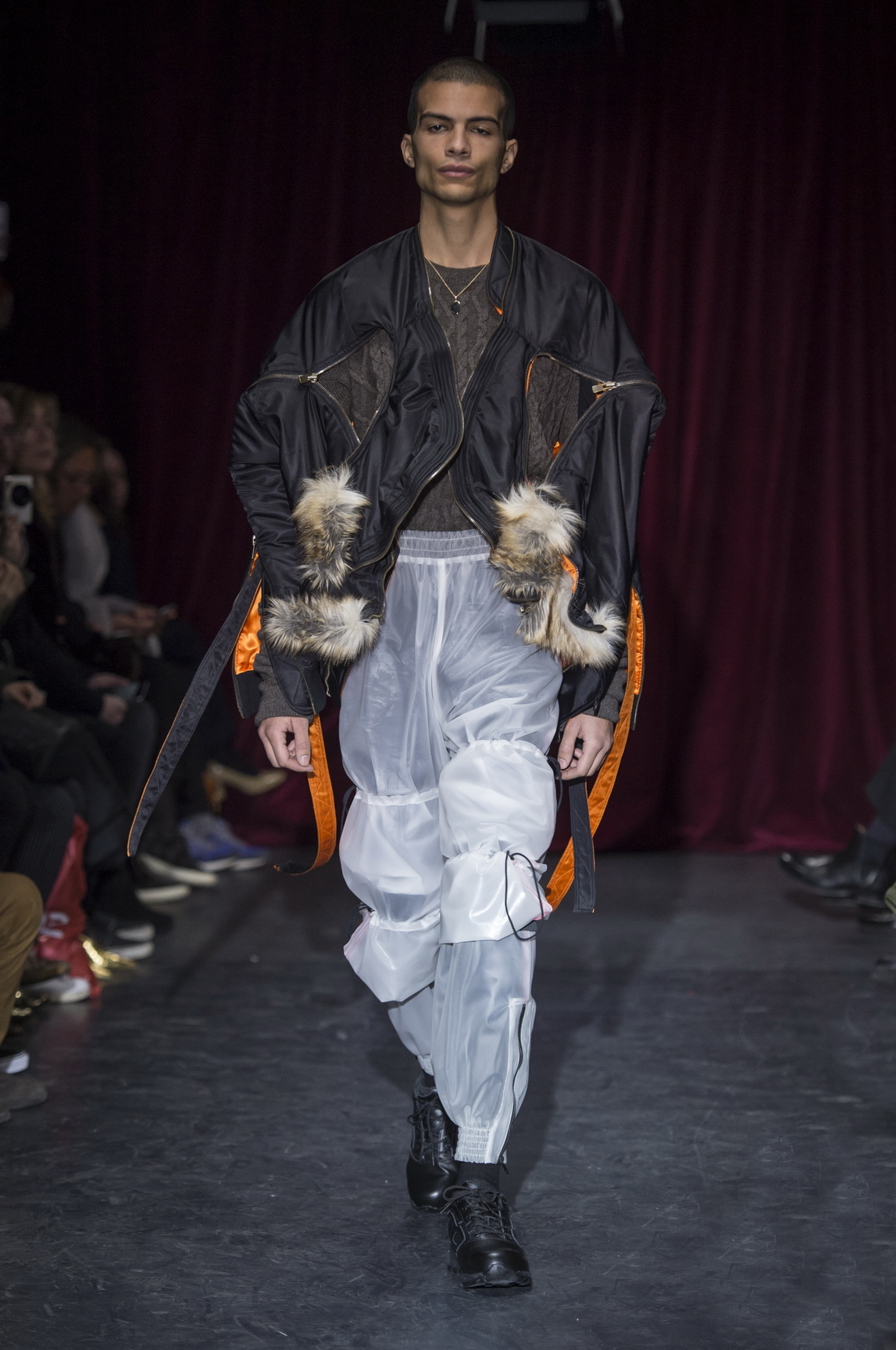
Credits
Text Anders Christian Madsen
Photography Mitchell Sams
